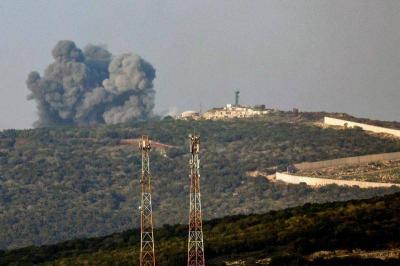The Israeli newspaper Haaretz considers the outbreak of a comprehensive war between Israel and Hezbollah to have been expected since October 8 of last year. However, the unknown factor is the extent of the destruction this war will inflict on Israeli civilian infrastructure, especially in light of the absence of American support for this conflict. Writer Dalia Shindelin reported in Haaretz that Hezbollah's attacks on Israeli positions from southern Lebanon since the beginning of the war between Hamas and Israel resulted in the evacuation of approximately 80,000 Israelis and 75,000 Lebanese from border areas.
According to the report, Hezbollah is trying to avoid a large-scale war, as evidenced by the speeches of its leader Hassan Nasrallah. In contrast, Israeli leaders are adopting a more aggressive stance toward the party. The Israeli government is considering launching a significant preemptive strike, supported by Defense Minister Yoav Gallant; however, U.S. opposition has so far prevented this action.
The war along the border remains intense, with Hezbollah firing anti-tank projectiles, as well as employing suicide drones and rockets, countered by Israeli airstrikes. This has resulted in the deaths of several Hezbollah fighters and Lebanese civilians, as well as a number of Israelis, both soldiers and civilians. According to Haaretz, the Israeli political leadership has adopted a hardline rhetoric towards the public, calling for a strong response against Hezbollah, while Defense Minister Benny Gantz threatened a military option should diplomatic solutions fail, adding that Israel could carry out military actions against Hezbollah regardless of a ceasefire with Hamas.
An Israeli assault on Lebanon has been anticipated since 2022: Haaretz notes that Israelis have been contemplating a war against Lebanon even before the conflict with Hamas, citing an article published in the newspaper “Israel Hayom” on October 6, 2022, which called for strikes on Lebanon—a year before Israel's conflict with Hamas.
The newspaper posed another question about how Israel could justify opening another front against Hezbollah, which possesses significantly more destructive weaponry than Hamas, and asked: has anyone considered the costs? According to Haaretz, it is expected that Hezbollah will target Israeli infrastructure first, raising the question of how Tel Aviv would function without electricity, schools, hospitals, and supermarkets.
The paper referenced a document circulated on social media displaying the emblem of the Ministry of Justice, which contains instructions in the event of a full-scale war in the north and attacks on power stations, warning of potential power outages, and advising people to stockpile water and mobile phone batteries.
Haaretz pointed to an article by Saudi foreign policy researcher Aziz Al-Ghushan, who asserted that Iran's commitment to Hezbollah is stronger than its commitment to Hamas, thereby increasing the likelihood of an escalation of the conflict. This comes as the Biden administration seeks to avoid a regional war, and will work to de-escalate it quickly, as affirmed by writer Frederick Hof, a resident diplomat at Bard College.
Hof confirmed that the administration is concerned that "Hezbollah will target civilians," and Israeli officials have already promised to hold Lebanon accountable for the actions of the party. This situation could result in significant civilian casualties and severe damage to infrastructure and property on the blue line, while endangering Americans, which prompts the U.S. administration to actively seek to halt the escalation.
Haaretz questioned who would stand by Israel in the event of this war, especially if Tel Aviv initiated a preemptive strike. According to Al-Ghushan, Saudi Arabia would see that it should not trust Israel to prevent regional escalation, viewing Israel as a security burden rather than just a potential strategic asset.
The paper concluded that both Israeli political leaders and analysts tend to avoid discussing the significant costs of this war, such as destructive attacks on infrastructure, the regional expansion of the conflict, the absence of American support, and the strain on relations with countries that Israel hopes to normalize ties with.




